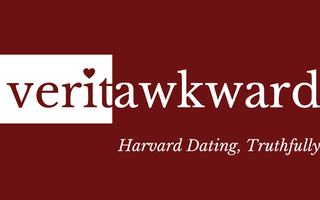{shortcode-feba5f3884d7384d9c4f0c4cc0557f132e2a6d05}I began, in my sophomore year of high school, to devise a repertoire of meticulous tricks in preparation for every one of my trips home. I fancied myself an illusionist, pouring soy sauce on a white plate, tracing the outlines of my imaginary meal with a chopstick—it was a private comedy, a thrilling act of forgery, and I was both excited and offended that no one ever discovered my acts of deception. Perhaps, I thought, they were too distracted by my mother, who ate with a ferocity unmatched even by feral animals. She possessed an intimate understanding of hunger, told stories of catching and skinning frogs to feed her brothers. It used to embarrass me, how she would swallow her food as if someone were trying to steal it. Now I was glad her habits would cover mine.
At school it was easy to stay unnoticed. I did as I pleased, lived in a room no one else entered, and recorded my progress in dry-erase marker on the surface of a full-length mirror. Occasionally, a dorm-mate would remark on my continued absence from the dining hall. For the most part I was left in peace.
In my mind it was purely logical, the natural consequence of knowing how to count. I grew to love it, in time, the beauty of the balanced equation, the quantity subtracted, the triglyceride transformed into carbon and water. But first the simplicity of it seduced me. How easily the body could be revised, how quickly the flesh surrendered to the whims of its inhabitant. A bloodless coup, quiet as a child drowning.
I observed it sometimes in other girls, small details, the litany of mental measurements audible only to fellow zealots. No, not you too, I’d think, a sharp pang of jealousy rising in my chest as though we hadn’t all learned it together, as though the root of this special power hadn’t been offered to every one of us. Recall the sixth grade outings to Moscone Playground; recall the way we repurposed the seesaw into a scale, clever girls, always inventing. In these moments perhaps our destinies were manifest.
And still I thought my sister would be immune.
When I think I see the signs, the first real signs, I tell no one. I wonder about the cause of the sick feeling inside of me: Am I protective of my sister or possessive of my disease?
“Audrey,” I ask her finally, “what are you doing?”
She is tightening the laces of her running shoes. The window is open. It is mid-January. There are no seasons here. “I’ll be back before dark,” she says.
When she’s gone, I find the script on the dining room table. The writing is ugly. The dialogue is the kind that must be delivered with a strained third-world accent.
TING:
Mother! Mother! Why doesn’t she see me? Where does she go?
BO-TAO:
Is only us two now.
I wonder what the process is for a film like this. The famine begins in the second act. Will they shoot the scenes in sequence, my sister’s body shrinking alongside her character’s? Or will she be healthy one day and half-starved the next? I wonder what the director will tell her. Sorry, no craft services, you have to look near-death tomorrow.
TING:
Please, Uncle. One egg. I won’t ask you tomorrow.
BO-TAO:
Some rice? Uncle, I beg you, my sister is hungry.
She returns in an hour, sweaty and red. I offer her bread, string cheese, a granola bar. And in her face I see that awful turning, the fluctuating resolve. I almost hear the calculations, before finally she shakes her head and walks away—a fast learner, like me.
—Staff writer Angela F. Hui's column, "My Sister Will Be Hungry," is a serialized work of fiction centered around a college student's relationships with her mother and sister. The story explores the effects of collective cultural trauma on the second generation of an American family.
Read more in Arts
A Rat, a Turkey, and a Squirrel Walk into a House...Recommended Articles
-
Lies, Truth, and FictionHow do you reconcile the people in your head with the people in your life, the people of your memory with those of your present? What does it mean, to be interesting enough to have your own story?
-
The Word: FirstLately, people have been asking me how I like being the oldest of four children. “That’s a lot of pressure,” everyone says. “They must really look up to you.”
-
Come Out, Come Out?National Coming Out Day should be a day for all LGBTQ+ people, regardless of whether they shout their queerness from the rooftops or haven’t come out to anyone other than themselves.
-
My Sister Will Be Hungry: Part II had succeeded, and hating decline as much as I did made success a paranoid place.
-
 Veritawkward Tackles Siblings and Scaredy Cats
Veritawkward Tackles Siblings and Scaredy Cats













